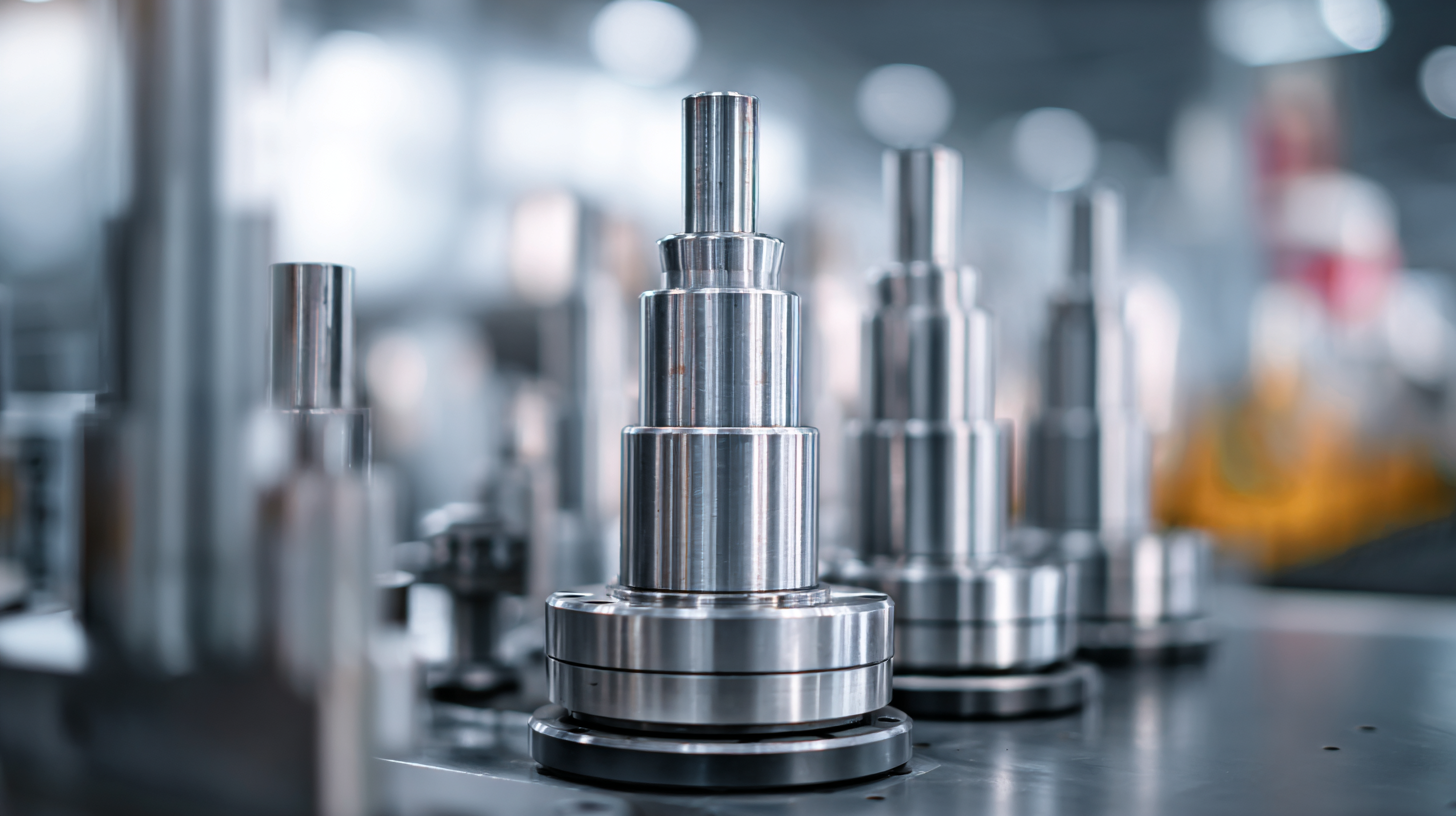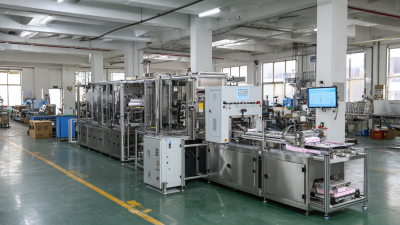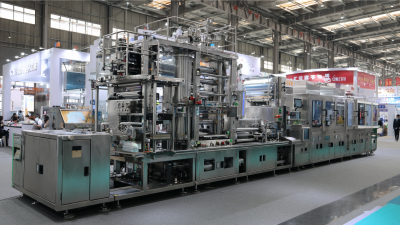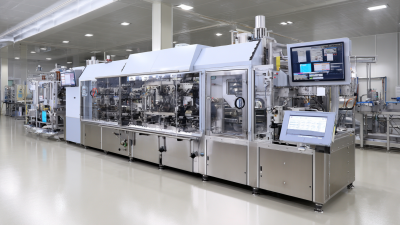The Ultimate Guide to Choosing the Perfect Seal Machine for Your Packaging Needs
In today's competitive market, selecting the right seal machine for your packaging needs is crucial for ensuring product quality and efficiency. With a plethora of options available, it's essential to understand the various types of seal machines and their functionalities to make an informed decision. This guide will walk you through the essential factors to consider when choosing a seal machine, including the materials used, production volume, and specific sealing techniques required for different types of products.
 Whether you are a small business looking to enhance your packaging process or a large manufacturer aiming for optimal performance, understanding these key elements will help you select the perfect seal machine that meets your operational demands and enhances your overall productivity.
Let’s dive into the essential considerations that will empower you to find the ideal seal machine tailored to your unique packaging requirements.
Whether you are a small business looking to enhance your packaging process or a large manufacturer aiming for optimal performance, understanding these key elements will help you select the perfect seal machine that meets your operational demands and enhances your overall productivity.
Let’s dive into the essential considerations that will empower you to find the ideal seal machine tailored to your unique packaging requirements.
Understanding Different Types of Seal Machines for Packaging Efficiency
Understanding the various types of seal machines is crucial for enhancing packaging efficiency in today’s fast-paced industrial landscape. According to a report by MarketsandMarkets, the global packaging machinery market is projected to reach $54.2 billion by 2025, reflecting an increasing recognition of the importance of effective sealing processes. The right sealing machine can significantly contribute to reducing material waste and ensuring product integrity, thus driving operational efficiency.
Different types of seal machines, such as heat sealers, vacuum sealers, and impulse sealers, cater to diverse packaging requirements. Heat sealers utilize heat to melt the packaging material, forming a strong bond, making them ideal for products requiring long shelf life. Conversely, vacuum sealers remove air from packaging, extending the freshness of perishable items—a necessity in food industries, where the USDA reports that spoilage can cause billions in losses each year. Impulse sealers, on the other hand, are suited for lower production volumes, offering versatility for small businesses that demand flexibility without sacrificing quality. Understanding these variations enables businesses to choose the perfect sealing solution tailored to their specific needs.
The Ultimate Guide to Choosing the Perfect Seal Machine for Your Packaging Needs
| Machine Type | Seal Type | Materials Compatible | Production Speed (PPM) | Ideal for |
|---|---|---|---|---|
| Impulse Sealers | Heat Seal | Plastic, Polyethylene | 15-30 | Small to Medium Scale |
| Continuous Band Sealers | Heat Seal | Foil, Backed Foil | 30-100 | Medium to Large Scale |
| Vacuum Sealers | Vacuum Seal | Plastic, Mylar | 10-20 | Food Packaging |
| Clamshell Sealers | Heat Seal | Plastic, PVC | 20-50 | Retail Packaging |
| Bag Sealers | Heat Seal | Polyethylene, Polypropylene | 15-60 | Food, Non-Food Items |
Key Features to Consider When Selecting a Seal Machine
When selecting a seal machine for packaging needs, it's crucial to consider several key features that can significantly influence both efficiency and product integrity. One of the foremost aspects is the machine's sealing technology, which can range from impulse sealers to continuous band sealers. According to industry reports, machines utilizing advanced sealing technologies provide more robust and consistent seals, reducing the risk of packaging failure by as much as 30%.

Another critical factor is the machine's versatility and adaptability to different packaging materials and sizes. A report by the Packaging Machinery Manufacturers Institute (PMMI) indicates that versatile machines can accommodate various materials, including plastics, foils, and paper, catering to a wide array of products. This feature not only enhances operational efficiency but also allows for easy shifts in production lines, which is vital in today's fast-paced industrial environments.
Lastly, integrating data-centric AI technologies can dramatically improve the machine's performance. With advanced algorithms, these machines can analyze real-time data for better decision-making in the sealing process, leading to improved accuracy and reduced waste. This capability aligns with the growing trend of focusing on data quality in manufacturing, further emphasizing the importance of choosing a seal machine equipped with the latest in machine learning and automation technologies.
Evaluating the Best Seal Machine Based on Your Packaging Material
When it comes to selecting the right seal machine for your packaging needs, the type of material you are working with plays a pivotal role. Different packaging materials such as plastic, aluminum, or paper each require specific sealing techniques to ensure durability and effectiveness. For instance, if your packaging consists mainly of polyethylene, a continuous sealing machine might be ideal due to its ability to provide a strong and consistent seal. On the other hand, for heat-sensitive materials, an impulse seal machine could prevent damage while ensuring an airtight seal.
Additionally, understanding the compatibility of your seal machine with various materials will enhance efficiency in your packaging process. For instance, some sealers are designed specifically for thicker or multi-layered materials, which necessitate greater heat and pressure to form a secure bond. Businesses should also consider the production volume, as high-speed operations may require machine features that accommodate larger runs without compromising quality. Evaluating these aspects will help you find the perfect seal machine tailored to your specific packaging material, ultimately leading to improved product integrity and customer satisfaction.
The Ultimate Guide to Choosing the Perfect Seal Machine
This chart evaluates the best seal machines based on their performance with different packaging materials. It highlights the effectiveness of various machines in sealing plastic, paper, metal, and glass.
Assessing Production Volume Needs for Optimal Seal Machine Selection
When selecting a seal machine for your packaging needs, assessing your production volume is crucial to making an optimal choice. According to a report by Smithers Pira, the global packaging market is projected to reach $500 billion by 2025, indicating a growing demand for efficient packaging solutions. This rise emphasizes the importance of choosing equipment that aligns with your specific production demands. For smaller operations, a manual or semi-automatic seal machine may suffice, providing flexibility and cost-efficiency without overwhelming startup costs. Conversely, high-volume production environments typically require automated seal machines, capable of handling rates of up to 150 packages per minute, like those highlighted in the latest Packaging Machinery Manufacturers Institute (PMMI) report.
Understanding your production volume also aids in evaluating the machine's durability and speed. Data from the International Packaging Association shows that machines designed for high-output facilities must not only be faster but also maintain precision to prevent product waste. Companies need to anticipate their growth trajectory when choosing these machines, as an initial investment in advanced technology can lead to substantial cost savings in the long term. With packaging innovation continuously evolving, making informed decisions based on accurate production volume assessments can significantly influence operational efficiency and profitability.
Cost-Benefit Analysis: Choosing the Right Seal Machine for Your Budget
When it comes to selecting the right seal machine for your packaging needs, a cost-benefit analysis is crucial. According to a report by Smithers Pira, the global packaging machinery market is expected to reach $50 billion by 2024, demonstrating the increasing reliance on efficient packaging solutions. Understanding the initial costs versus long-term benefits can help businesses allocate their budget effectively. For instance, while a lower-cost machine might seem appealing, it could result in higher maintenance expenses and lower operational efficiency over time. Investing in a reliable, automated sealing machine can yield a return on investment (ROI) exceeding 20% through reduced labor costs and enhanced productivity.

Tips: When evaluating sealing machines, consider the types of materials you will be working with. Choosing a machine capable of handling a range of materials can mitigate the need for multiple investments in the long run. Additionally, factor in energy efficiency, as machines with better energy ratings can lead to significant savings over their operational life.
Furthermore, researching trusted brands and their customer service reputation is essential. According to Packaging World, companies that prioritize equipment reliability and post-sale support can save upwards of 15% in unexpected costs. Engaging with industry professionals and user reviews can provide insights into the most suitable machines for your specific packaging needs.
Related Posts
-

How to Choose the Right Form Fill and Seal Machine for Your Packaging Needs
-

The Ultimate Guide to Comparing Packaging Automation Solutions for Global Buyers
-

Unlocking Efficiency and Profitability with Powder Packaging Machines for Global Suppliers
-

Exploring Industry Growth: Vertical Form Fill Seal Machines at the 138th Canton Fair 2025
-

7 Unique Benefits of Using a Pharmaceutical Filling Machine for Your Production流程
-

How to Optimize Your Production Line Using Stick Pack Machines for Maximum Efficiency
